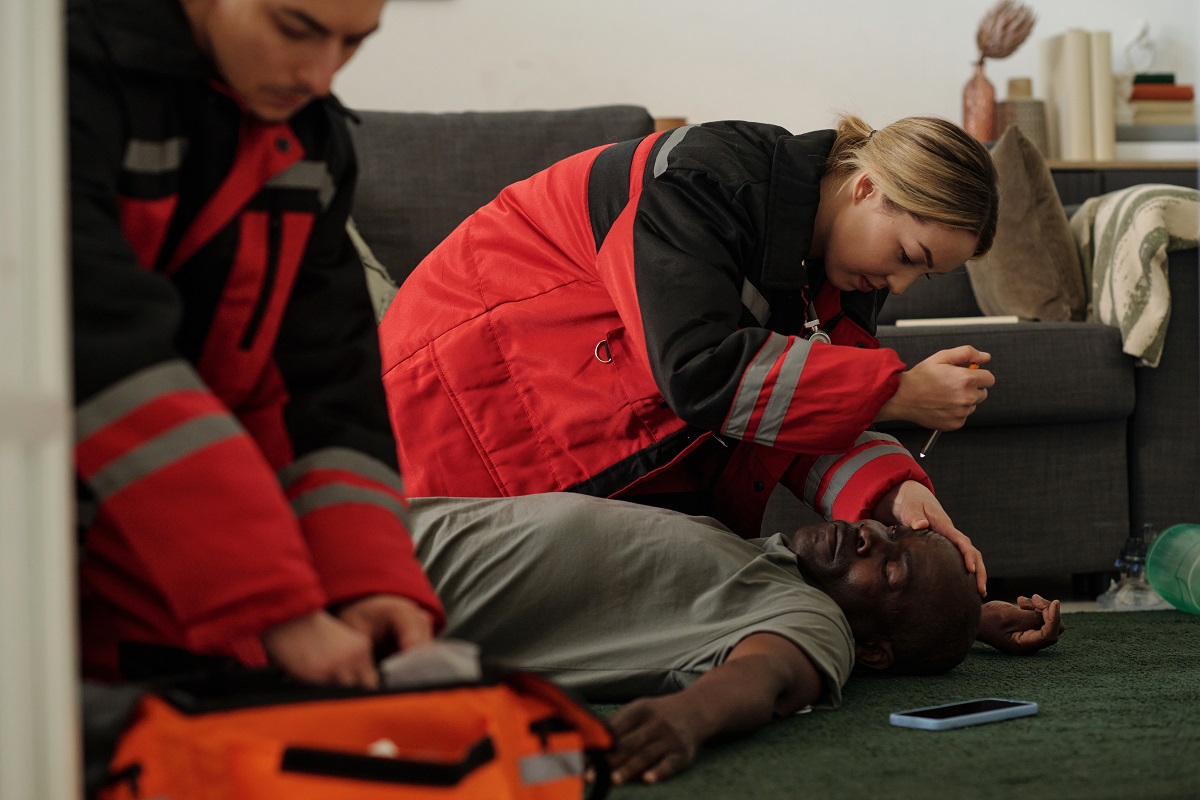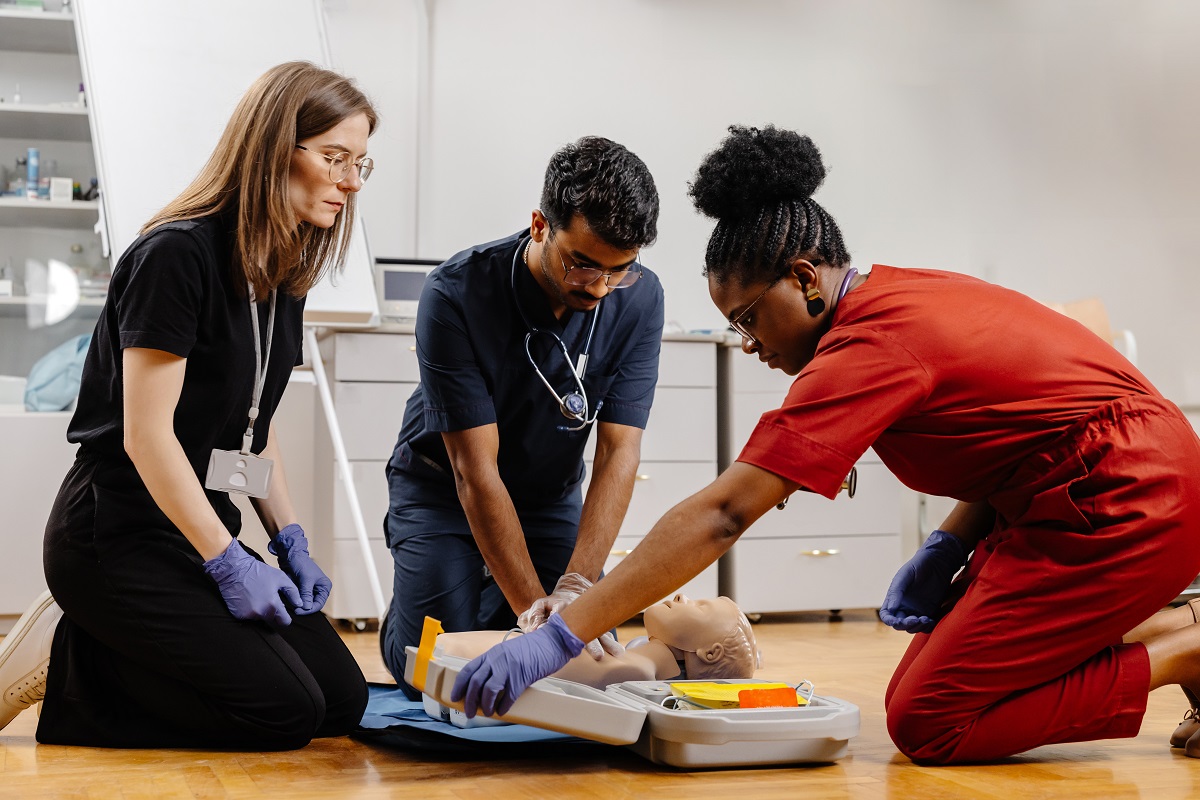Nursing is one of the most demanding — and rewarding — professions in the world. But success in this career requires more than just medical knowledge. The skills needed to be a nurse go far beyond learning procedures or memorizing terms. They include the ability to make quick decisions, provide emotional support, and balance the needs of multiple patients without losing focus.
Whether you are a nursing student preparing for your first clinical rotation, a registered nurse aiming to grow in your career, or someone simply curious about what it takes, understanding these skills is essential. Every day, nurses must communicate with patients, collaborate with the healthcare team, and adapt their nursing practice to changing situations. These are the qualities that turn tasks into true patient care.
In this blog, we’ll explore the essential skills for nurses that not only keep patients safe but also define what makes nursing such a vital part of healthcare. You’ll see why these skills matter, how they impact outcomes, and ways you can develop them through training and experience.

Key Takeaways
- Nursing requires both technical and interpersonal skills to provide safe, effective care.
- Skills such as effective communication, critical thinking and problem solving, and attention to detail directly influence patient safety.
- The most valuable skills of a nurse can be developed through practice, mentorship, and continuing education.
- Courses like CPR, BLS, ACLS, and PALS give nurses practical tools to build confidence and strengthen their skill set.
What Nursing Truly Involves
Nursing is often described as both an art and a science. On one hand, it requires compassion, empathy, and the ability to communicate with patients in ways that make them feel heard and supported. On the other, it depends on technical skills, medical knowledge, and the discipline of following evidence-based practices. Together, these create the foundation of safe and effective nursing practice.
But what does this really look like on a daily basis? Nurses work in settings as varied as hospitals, clinics, schools, and even home health. Their responsibilities extend far beyond giving medications or taking vital signs. They coordinate with the healthcare team, monitor patient condition, update the care plan, and respond quickly when emergencies happen.
A report from the National Library of Medicine highlights that one of the most important skills nurses develop is adaptability — the ability to shift between technical procedures and emotional support depending on the patient’s needs. This balance is what makes nursing unique: a blend of science, skill, and humanity that protects both outcomes and dignity.
For those wondering what skills do you need to be a nurse?, the answer lies in recognizing how complex the role really is. Beyond the clinical tasks, it’s about managing multiple patients at once, showing attention to detail, and using communication skills to build trust with both patients and colleagues.
In short, nursing isn’t just about following orders. It’s about using judgment, empathy, and critical thinking and problem solving to ensure patient safety while delivering quality care.
Core Skills Needed to Be a Nurse
When people picture nurses, they often think of compassion or bedside manner. While those are vital, the full list of skills needed to be a nurse goes much deeper. Nursing combines practical abilities with emotional intelligence, giving professionals the tools to handle both routine care and life-or-death moments. Below are some of the essential skills for nurses that shape safe, effective, and trustworthy care.
1. Compassion and Empathy
Every patient arrives with a story — sometimes fear, sometimes pain, sometimes uncertainty. Being able to show genuine compassion builds trust and creates a safe environment for healing. Empathy doesn’t replace clinical knowledge, but it makes patients more receptive to treatment and helps them feel valued as individuals.
2. Communication Skills
Strong communication skills are more than talking; they include listening closely, asking the right questions, and simplifying complex instructions. Good communication is what allows nurses to solve problems before they escalate and to keep patients informed about their care. Just as important, clear communication keeps the healthcare team aligned so everyone works toward the same goal.
3. Critical Thinking and Problem Solving
No two patients are ever alike. Nurses must use critical thinking and problem solving to quickly analyze a situation and act on it. Whether adjusting a care plan based on new test results or noticing subtle changes in patient condition, these decisions often prevent complications before they occur.
4. Attention to Detail
Small mistakes can have big consequences in healthcare. From checking medication doses to recording vital signs, attention to detail ensures accuracy and protects patient safety. This isn’t about perfectionism — it’s about building habits that catch errors before they reach the patient.
5. Time Management and Prioritization
Caring for multiple patients means deciding what needs attention right now versus what can wait. Nurses constantly balance urgent needs with routine care. Effective prioritization prevents overwhelm and ensures that no patient is overlooked, even during busy shifts.
6. Adaptability and Resilience
Healthcare is unpredictable. A calm morning can turn into an emergency within minutes. Nurses must adapt quickly while maintaining composure, showing resilience under pressure. This adaptability protects both patients and the nurse’s well-being, helping them sustain long careers in demanding environments.
7. Technical Skills and Lifelong Learning
From starting IVs to reading monitors, technical abilities remain part of the basic nursing skills that every professional must master. But just as important is the willingness to keep learning. Guidelines, technology, and best practices change — and nurses who commit to ongoing education remain sharp, safe, and effective.
Tips to Develop These Skills Through Training
Courses aren’t just about earning certifications — they’re opportunities to sharpen the real-world skills for a nurse. Here are a few programs that directly strengthen the abilities nurses rely on every day:
- CPR Certification
Builds confidence in responding to cardiac and breathing emergencies. It strengthens attention to detail and ensures nurses can act quickly to protect patient safety. - Basic Life Support (BLS)
Reinforces effective communication and teamwork by practicing how to direct others in emergencies. BLS also helps nurses manage multiple patients in urgent settings. - Advanced Cardiac Life Support (ACLS)
Sharpens critical thinking and problem solving by teaching how to handle complex cardiac situations. ACLS pushes nurses to make decisions under pressure while keeping the care plan on track. - Pediatric Advanced Life Support (PALS)
Focuses on recognizing subtle changes in patient condition for infants and children. This course helps nurses ensure patient care even when signs are harder to detect. - First Aid Training
Expands the range of basic nursing skills by covering burns, wounds, and sudden illness. It helps nurses solve problems beyond hospital walls and adds practical versatility to their role.
These courses are more than certifications — they are stepping stones for nursing students and professionals who want to stay prepared, protect lives, and meet the modern skill requirements for a nurse.
Questions to Ask Yourself as You Grow in Nursing
Developing the right skills in nursing isn’t just about passing exams or collecting certifications. Growth shows up in the way you handle daily responsibilities and the way you interact with people. Asking yourself the right questions can highlight strengths and point out where you still need practice.
Do I show empathy and communicate with patients in a way that makes them feel supported? This reflects how well your communication skills are shaping trust and improving patient care.
When I face an unexpected challenge, do I use critical thinking and problem solving to respond quickly and effectively? Strong decision-making is at the heart of safe nursing practice.
Am I keeping attention to detail when caring for multiple patients, or am I rushing through tasks? Even small lapses can affect patient safety and the overall outcome of the care plan.
As a registered nurse or one of many nursing students preparing for the profession, am I committed to learning and improving the essential skills that define excellent care? Growth is not a one-time effort — it’s a habit.
These questions are not about judgment. They’re about self-awareness. Nurses who reflect regularly tend to strengthen their abilities faster, work better with the healthcare team, and create safer environments for their patients.
Conclusion
The skills needed to be a nurse are not only about medical knowledge — they’re about communication, judgment, and quick action that protect patient safety every day. These abilities grow stronger with practice and the right training.
At Comfi-Kare CPR, we offer courses like CPR, BLS, ACLS, and PALS that help nurses and nursing students strengthen these essential skills. Contact us to learn more about our programs and take the next step in building confidence and excellence in nursing.
Frequently Asked Questions about Skills Needed to be a Nurse
What kind of skills do you need to be a nurse?
Nurses need a balance of technical abilities and interpersonal strengths. Core skills for a nurse include communication, critical thinking, time management, adaptability, and attention to detail, all of which support safe and effective patient care.
What is your greatest skill as a nurse?
The greatest skill often depends on the individual, but many nurses point to effective communication as their strongest asset. It allows them to build trust with patients, work well with the healthcare team, and keep care organized.
What are the 6 C’s of nursing?
The 6 C’s are care, compassion, competence, communication, courage, and commitment. They represent the values that guide nursing practice and ensure that patients receive both safe treatment and human connection.
What is a basic nursing skill?
A basic nursing skill is something all nurses are trained to do early in their careers, such as checking vital signs, providing hygiene support, or giving medications. These form the foundation of more advanced responsibilities and are key to building trust in patient relationships.
What qualities does a nurse need?
A nurse needs compassion, resilience, and strong communication skills to connect with patients and the healthcare team. Equally important are reliability, adaptability, and integrity, which guide safe nursing practice and help maintain trust in every aspect of patient care.


